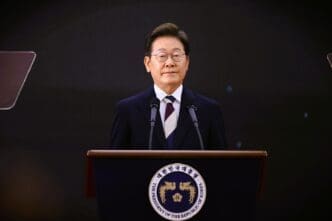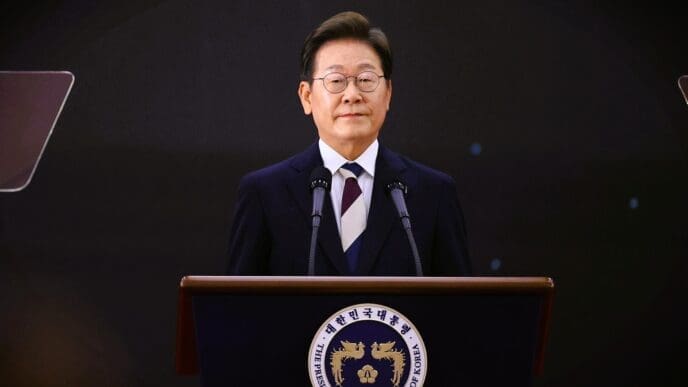In a recent session of the Australian Senate, a crucial discussion unfolded regarding proposed legislation that aims to prohibit individuals under the age of 16 from accessing social media platforms.
Sunita Bose, the managing director of Digital Industry Group Inc., addressed the Senate committee, advocating for a delay in the legislation. The law, which could impose significant fines, aims to prevent children under 16 from holding social media accounts. Bose emphasized the need for a thorough evaluation of age verification technologies set to conclude in June. She highlighted that passing the bill without this data risks introducing an ineffective system.
The proposed legislation, expected to gain parliamentary approval by Thursday, plans to enforce compliance through fines reaching up to AU$50 million for platforms failing to adhere to the regulations. The law’s implementation, slated for a year after its passage, provides time for technological adjustments while safeguarding user privacy.
The hearing saw intense exchanges as Bose fielded questions from various senators. Opposition Senator Ross Cadell questioned why his 10-year-old stepson could access social media accounts despite nominal age restrictions. Bose acknowledged industry shortcomings, noting this area requires improvement. She warned that the ban might drive children towards less safe online environments.
Bose’s concerns about user safety were met with skepticism. Opposition Senator Sarah Henderson accused Bose of protecting large technology companies rather than prioritizing children’s safety. Meanwhile, Senator Jacqui Lambie challenged the platforms’ failure to utilize algorithms to restrict harmful content from reaching minors. Bose responded by advocating for continued algorithmic investment to enhance content filtering capabilities.
Inquiries about the platforms’ advertising revenue from young users were also raised. Bose admitted a lack of knowledge regarding specific financial figures from Australian minors. Additionally, the committee learned about a Harvard T.H. Chan School of Public Health study that found substantial profits from advertising targeted at U.S. users under 18.
Communications department officials, including Deputy Secretary James Chisholm, supported the age restriction proposal. Chisholm assured the committee that the recommendation followed extensive consultations and expressed confidence in its feasibility. Sarah Vandenbroek noted that the upcoming technology evaluation would consider both the accuracy and privacy implications of age verification methods.
The debate over Australia’s groundbreaking social media regulation underscores the complexity of balancing child safety with technological feasibility. As the discussion continues, the need for informed legislative action remains at the forefront, ensuring that any implemented measures effectively safeguard young users while respecting privacy concerns.
Source: News4jax













